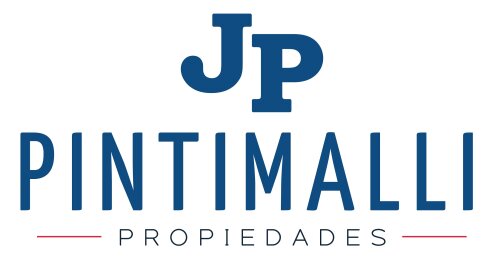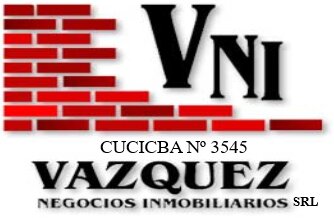Best Landlord & Tenant Lawyers in Buenos Aires
Share your needs with us, get contacted by law firms.
Free. Takes 2 min.
Free Guide to Hiring a Real Estate Lawyer
List of the best lawyers in Buenos Aires, Argentina
About Landlord & Tenant Law in Buenos Aires, Argentina:
Landlord & Tenant law in Buenos Aires, Argentina governs the rights and responsibilities of both landlords and tenants in rental properties. The law establishes guidelines on issues such as lease agreements, rent payments, property maintenance, and evictions.
Why You May Need a Lawyer:
You may need a lawyer in Landlord & Tenant issues in Buenos Aires if you are facing disputes with your landlord or tenant, need assistance with drafting or reviewing a lease agreement, or require guidance on your rights and obligations as a landlord or tenant.
Local Laws Overview:
Some key aspects of Landlord & Tenant laws in Buenos Aires, Argentina include regulations on rent increases, security deposits, eviction procedures, property maintenance responsibilities, and tenant rights in case of property defects or breaches of contract.
Frequently Asked Questions:
1. Can a landlord evict a tenant without a valid reason?
In Buenos Aires, landlords can only evict tenants for specific reasons outlined in the law, such as non-payment of rent or breach of lease terms.
2. Is there a limit on how much a landlord can increase rent?
Landlords in Buenos Aires are subject to rent control laws that establish limits on rent increases. Consult with a legal expert to understand these regulations.
3. Can a tenant withhold rent for property repairs?
Tenants have the right to request property repairs and may withhold rent if the landlord fails to make necessary repairs within a reasonable timeframe.
4. What are my rights as a tenant if the landlord wants to terminate the lease agreement?
Tenants have legal protections against unjust eviction and are entitled to proper notice and due process before being asked to leave the property.
5. How can I dispute a security deposit deduction by the landlord?
If you disagree with deductions made from your security deposit, you can challenge them through legal channels and seek a resolution through the appropriate authorities.
6. Can a landlord enter the rental property without tenant permission?
Landlords must respect tenant privacy rights and can only enter the rental property with the tenant's consent or in emergencies. Educate yourself on relevant laws to prevent unauthorized entry.
7. What responsibilities does a landlord have regarding property maintenance?
Landlords are responsible for maintaining the property in a habitable condition and addressing any necessary repairs promptly. Failure to do so may lead to legal consequences.
8. Can a tenant sublet the rental property to another person?
Subletting rights may vary depending on the terms of the lease agreement and local laws. Consult legal advice before subletting to ensure compliance with regulations.
9. What can I do if the landlord refuses to return my security deposit upon lease termination?
If the landlord withholds your security deposit unfairly, you may take legal action to recover the amount owed. Seek legal assistance to understand your rights in such situations.
10. Are there any resources available for tenants seeking legal assistance in Landlord & Tenant matters?
Various organizations, legal aid clinics, and governmental bodies in Buenos Aires offer resources and guidance to tenants facing legal issues related to landlord-tenant disputes. Research these options for support and advice.
Additional Resources:
For further information or legal assistance in Landlord & Tenant matters in Buenos Aires, Argentina, consider reaching out to the Consumer Protection Agency, housing rights organizations, or local legal aid services for support.
Next Steps:
If you require legal advice or representation in Landlord & Tenant issues in Buenos Aires, Argentina, consider contacting a qualified lawyer specializing in real estate law. Schedule a consultation to discuss your situation and explore the best course of action to protect your rights and interests.
Lawzana helps you find the best lawyers and law firms in Buenos Aires through a curated and pre-screened list of qualified legal professionals. Our platform offers rankings and detailed profiles of attorneys and law firms, allowing you to compare based on practice areas, including Landlord & Tenant, experience, and client feedback.
Each profile includes a description of the firm's areas of practice, client reviews, team members and partners, year of establishment, spoken languages, office locations, contact information, social media presence, and any published articles or resources. Most firms on our platform speak English and are experienced in both local and international legal matters.
Get a quote from top-rated law firms in Buenos Aires, Argentina — quickly, securely, and without unnecessary hassle.
Disclaimer:
The information provided on this page is for general informational purposes only and does not constitute legal advice. While we strive to ensure the accuracy and relevance of the content, legal information may change over time, and interpretations of the law can vary. You should always consult with a qualified legal professional for advice specific to your situation.
We disclaim all liability for actions taken or not taken based on the content of this page. If you believe any information is incorrect or outdated, please contact us, and we will review and update it where appropriate.
















